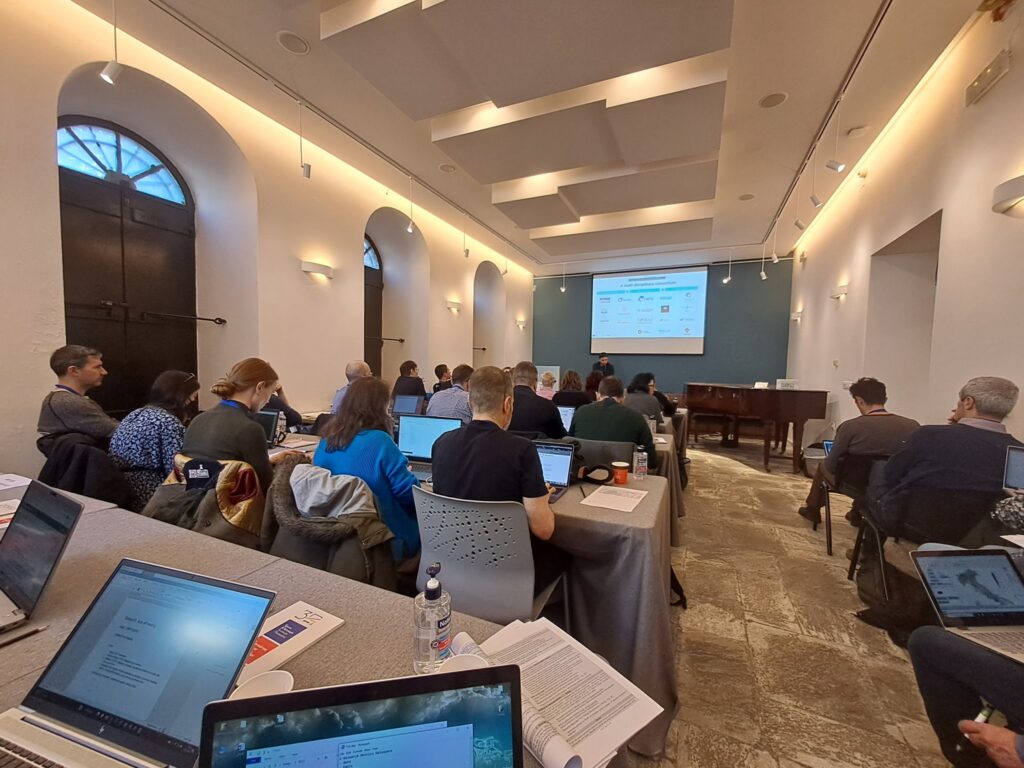
OPUS presented at GraspOS kick off meeting
OPUS presented at GraspOS kick off meeting https://opusproject.eu/wp-content/uploads/2023/01/GraspOS-1024x768.jpeg 1024 768 Open and Universal Science (OPUS) Project Open and Universal Science (OPUS) Project https://opusproject.eu/wp-content/uploads/2023/01/GraspOS-1024x768.jpegAt the GraspOS kickoff meeting that is being held today at the Athens University History (Athens, Greece), OPUS project partner Technopolis Group, and its representative Gareth O’Neill – Principal Consultant on Open Science, presented what the OPUS does when it comes to a set of interventions for Open Science toward a system that incentivises and rewards researchers to take up practices of providing open access to research outputs, early and open sharing of research, participation in open peer-review, measures to ensure reproducibility of results, and involving all stakeholders in co-creation.
GraspOS (next Generation Research Assessment to Promote Open Science) is a new project funded under the EOSC umbrella. The project builds on previous work and aims to promote Responsible Research Assessment by enabling a rewards and recognition system based on a new generation of (qualitative or quantitative) metrics and indicators. GraspOS will develop, assess and put into operation an open and trusted federated infrastructure for next generation research metrics and indicators. Developing an Open Science Assessment Framework (OSAF) is shown as a key project objective. The 18-partner GraspOS project consortium shows again some overlap with the consortia for the other two EOSC projects presented previously, FAIRCORE4EOSC and FAIR-IMPACT.
O’Neill explained that the goal of OPUS is to develop coordination and support measures to reform the assessment of research(ers), along with the following:
- Conduct a comprehensive state-of-the-art on existing literature and initiatives for Open Science
- Develop a comprehensive set of interventions to implement Open Science at RPOs and RFOs
- Develop realistic indicators and metrics to monitor and drive Open Science at RPOs and RFOs
- Test the interventions and indicators and metrics via action plans in pilots at RPOs and RFOs
- Utilise a stakeholder-driven feedback loop to develop, monitor, refine, and validate actions
- Synthesise outcomes into policy briefs and a revised OS-CAM2 for research(er) assessment.
OPUS is is an EU-funded project being implemented in the period from 1 September 2022 to 31 August 2025 by an eighteen-organisations consortium led by The Oceanic Platform of the Canary Islands (PLOCAN). All 18 organisations implementing the OPUS project are active at the European level spanning the whole spectrum of Open Science.
OPUS is is an EU-funded project being implemented in the period from 1 September 2022 to 31 August 2025 by an eighteen-organisations consortium led by The Oceanic Platform of the Canary Islands (PLOCAN). All 18 organisations implementing the OPUS project are active at the European level spanning the whole spectrum of Open Science.
- Posted In:
- OPUS News

